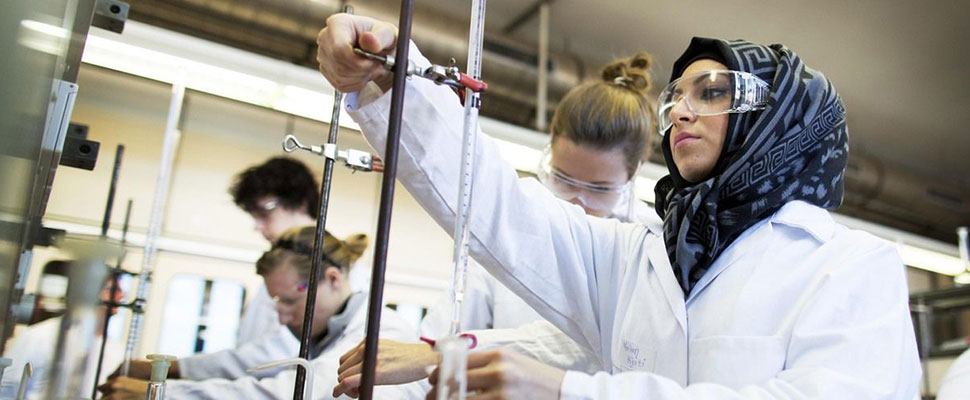This is how Muslim women revolutionize the global economy
The workforce of Muslim women is concentrated in the sectors of science, engineering, and technology

In Muslim countries, education is a right that has remained foreign to women, but in the last decade this condition has changed and now the rate of Muslim women graduated from the university exceeds the statistics of countries like Brazil, Mexico, and China.
Leer en español: Así revolucionan las mujeres musulmanas la economía global
At least this is stated by the research of Saadia Zahidi, economist and director of the Committee and Head of Education, Gender and Work at the World Economic Forum, who has concentrated her efforts on observing the growth of this population in the workplace since 2008.
According to Zahadi, over the last 10 years, more than 50 million Muslim women have been linked to the labor force in their region. Although the figure is surprising, the most noteworthy thing is that those women are working mostly in engineering, technology, and systems; professions that in other parts of the world seem to be exclusive to men.
Official data show that five countries with more women studying careers in science, technology, and engineering are Muslim majority and more and more entrepreneurs who from their knowledge open opportunities in the market, according to the Times Higher Education.
According to the United Nations (UN), in eight of the 16 countries that form the Middle East, there are more women than men in the university. 50% of women entering higher education graduate, which corresponds to a statistic that in countries like Brazil, Mexico, China, and India cannot be achieved.
A silent struggle for equality
Although this region becomes a global example towards women's labor and salary equality with men, the struggle to reach the position in which they are in has not been easy and still has a long way to go.
It should be remembered that in October 2012, 14-year-old Malala Yousafzai was shot in the head for demanding the Taliban in Pakistan to allow the girls to go to school. Two years later and after a miraculous recovery, Malala received the Nobel Peace Prize and became the world leader in the right to education for girls and women throughout the world.
50 million of Muslim women have joined the workforce in the last decade, shaping economies not only in their countries but beyond their borders. However, female unemployment in this area of the planet is still one of the highest and with the biggest wage gaps. According to the International Labor Organization (ILO), the female unemployment rate in the Middle East is 16%, while the world average is estimated at 6%.
However, the 155 million of Muslim women who are currently employed represent a trillion dollars for the global economy, according to Arab News, thus boosting not only the economic strength in their countries, but also that which goes beyond their borders.
Latin American Post | Krishna Jaramillo
Translated from "Así revolucionan las mujeres musulmanas la economía global"





